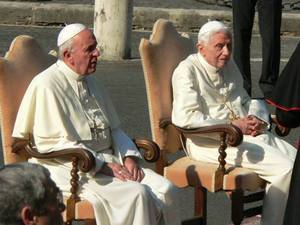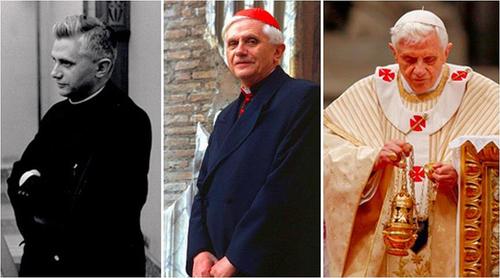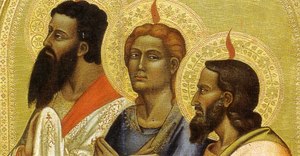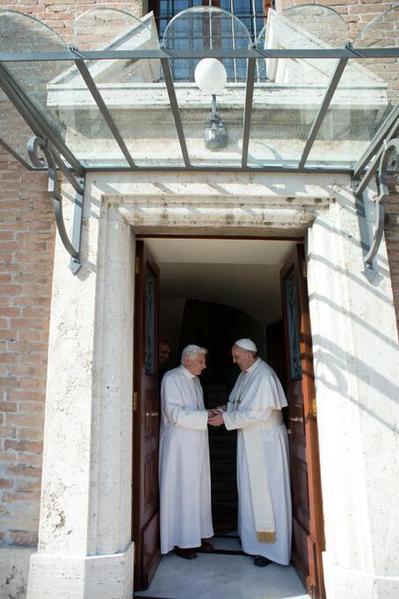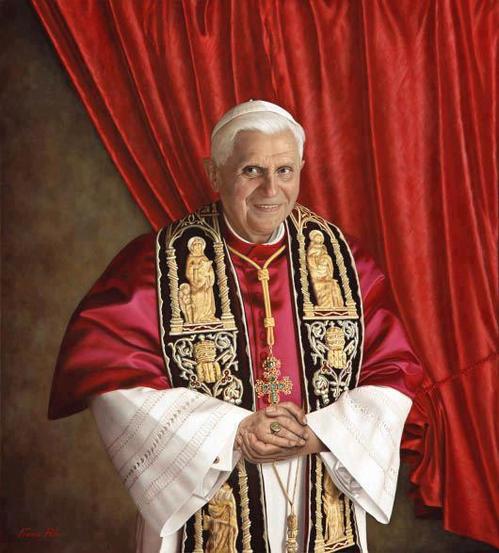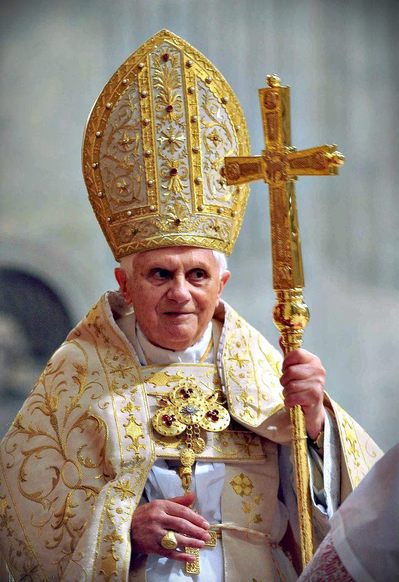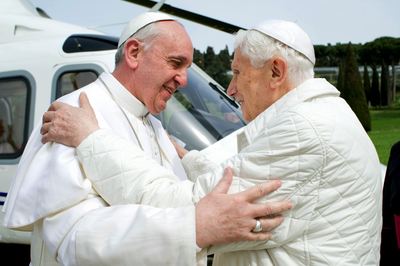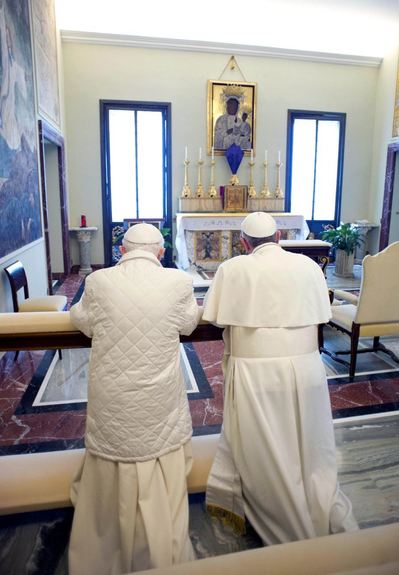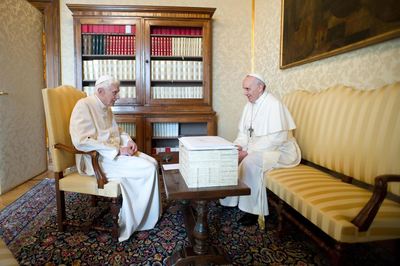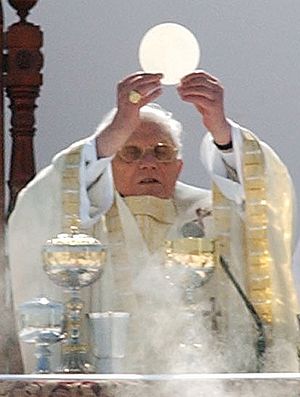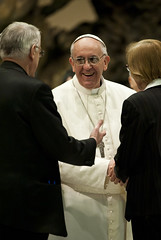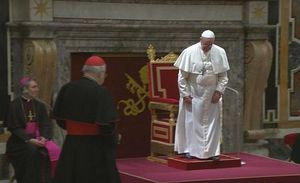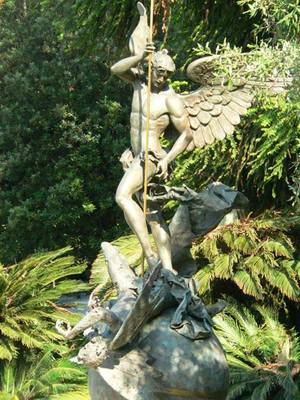
Popes Francis and Benedict at opening this morning at the blessing of a statue of Saint Michael the Archangel, near the Vatican Governorate. Pope Francis said,
"In the Vatican Gardens there are several works of art. But this, which has now been added, takes on particular importance, in its location as well as the meaning it expresses. In fact it is not just celebratory work but an invitation to reflection and prayer, that fits well into the Year of Faith. Michael - which means "Who is like God" - is the champion of the primacy of God, of His transcendence and power. Michael struggles to restore divine justice and defends the People of God from his enemies, above all by the enemy par excellence, the devil. And St. Michael wins because in him, there is He God who acts. This sculpture reminds us then that evil is overcome, the accuser is unmasked, his head crushed, because salvation was accomplished once and for all in the blood of Christ. Though the devil always tries to disfigure the face of the Archangel and that of humanity, God is stronger, it is His victory and His salvation that is offered to all men. We are not alone on the journey or in the trials of life, we are accompanied and supported by the Angels of God, who offer, so to speak, their wings to help us overcome so many dangers, in order to fly high compared to those realities that can weigh down our lives or drag us down. In consecrating Vatican City State to St. Michael the Archangel, I ask him to defend us from the evil one and banish him."
